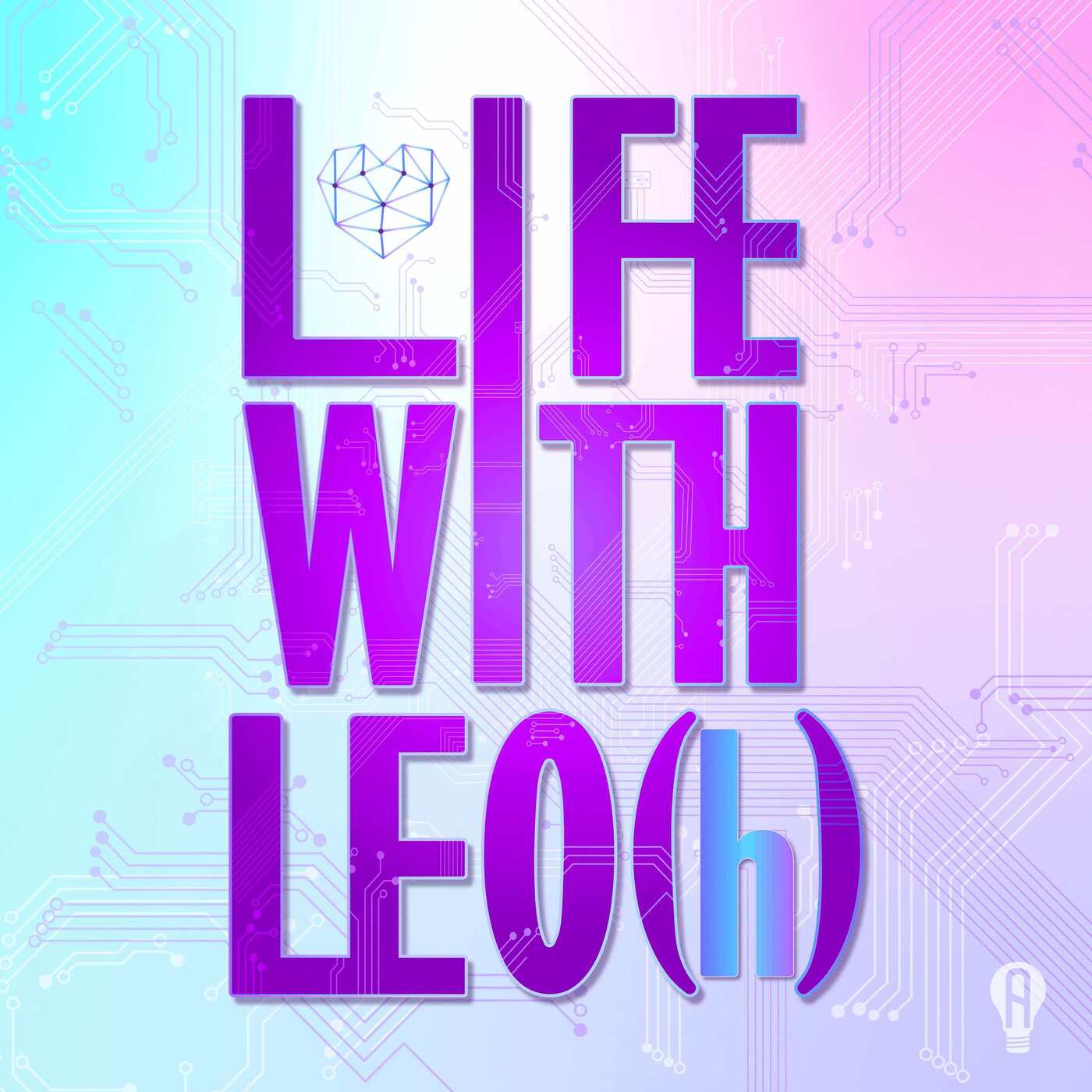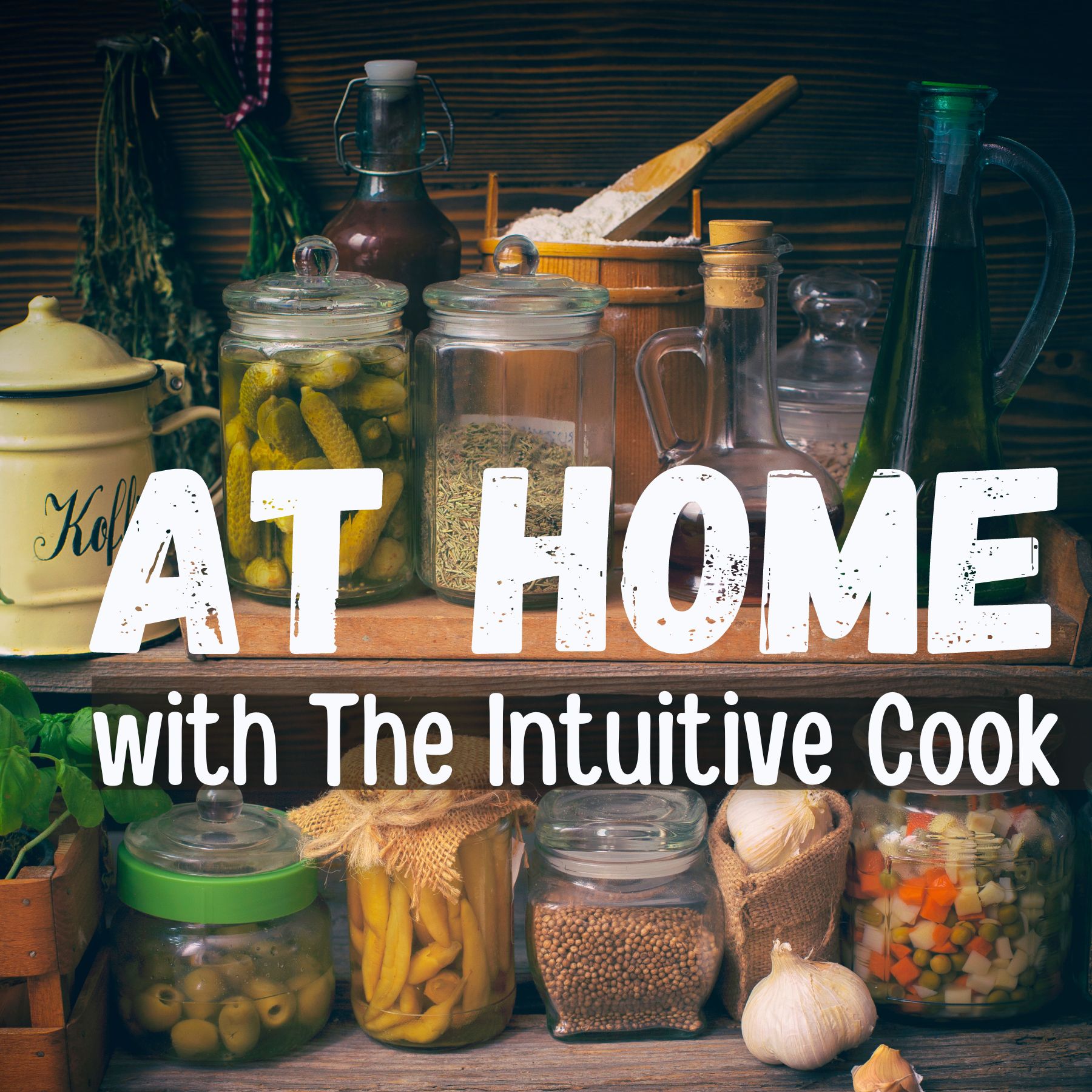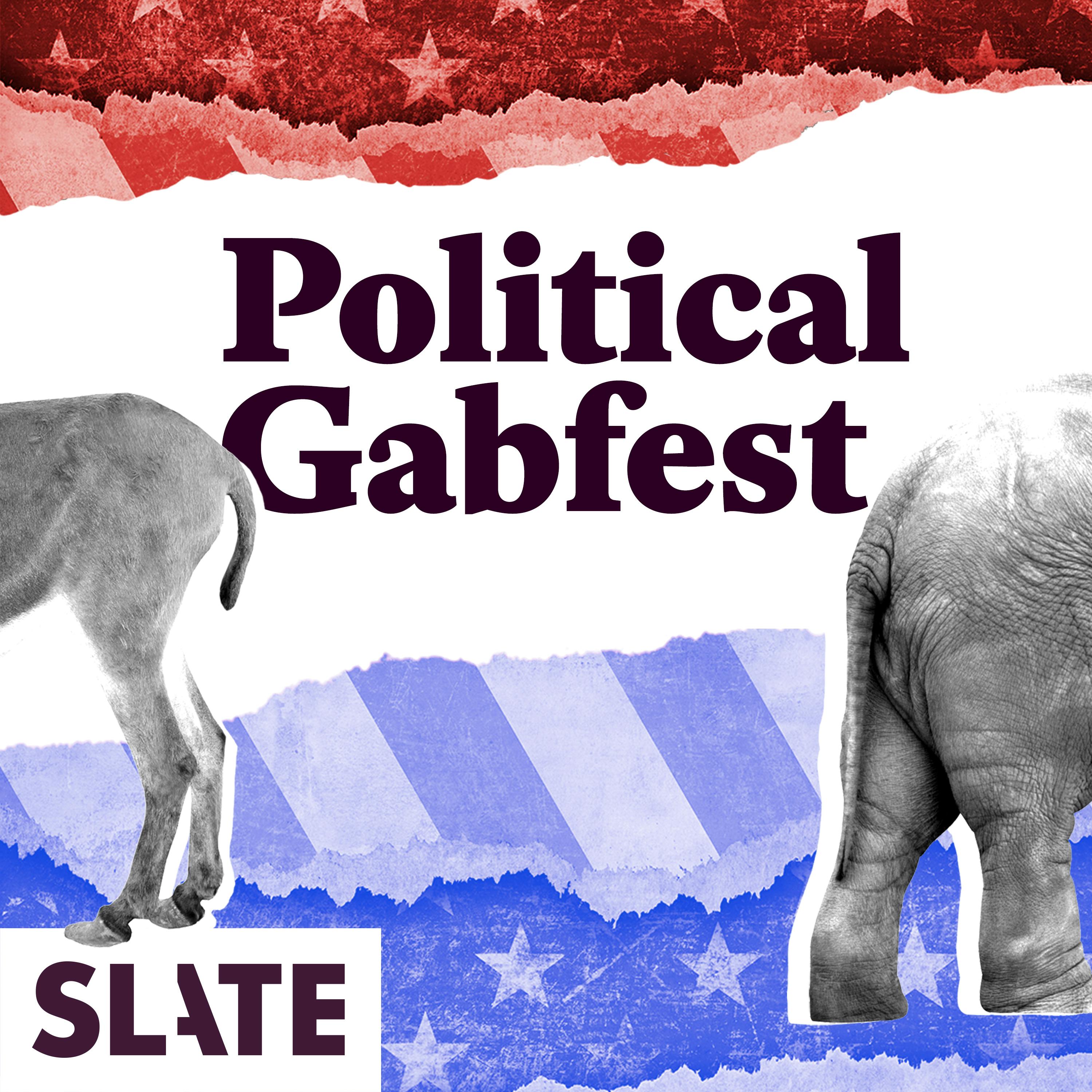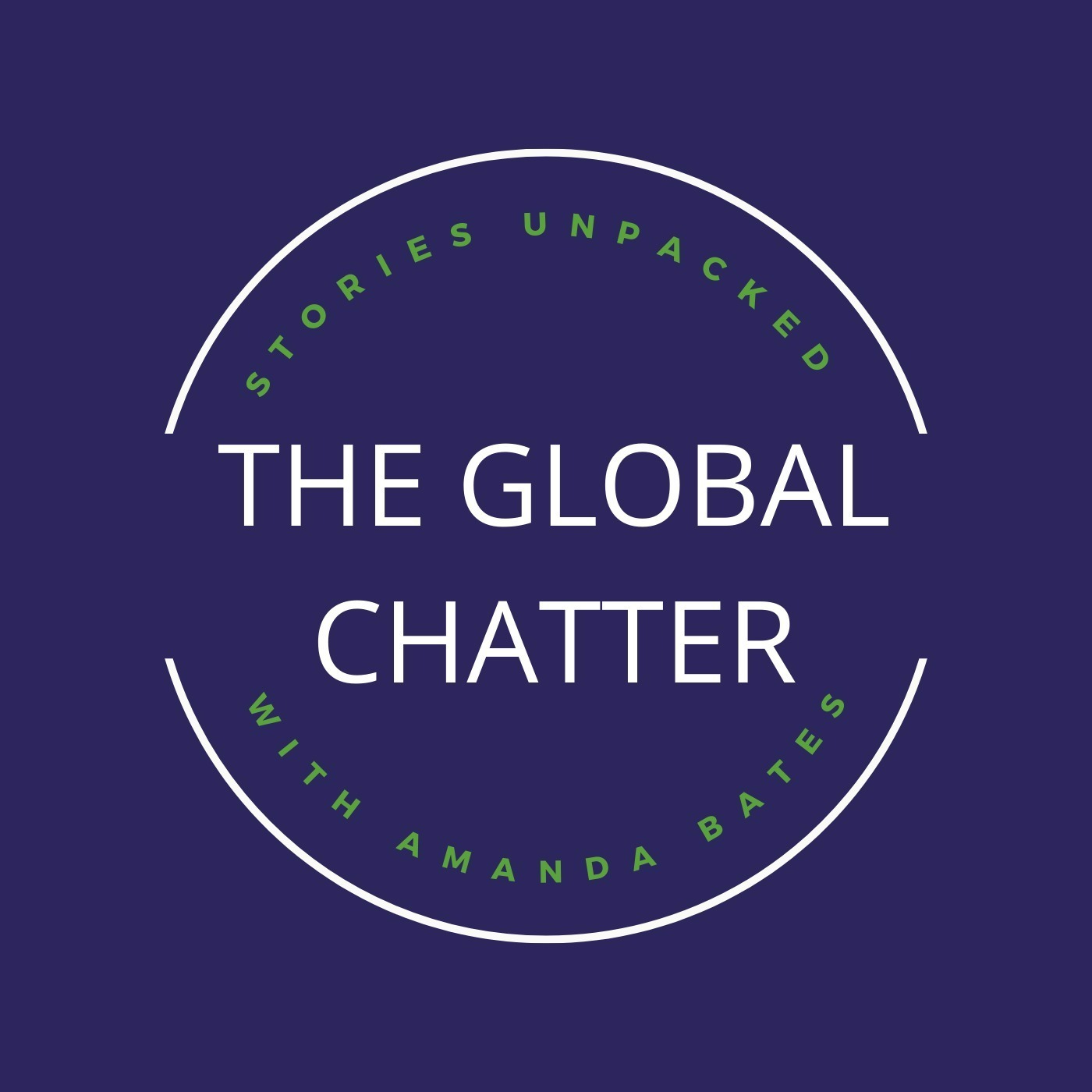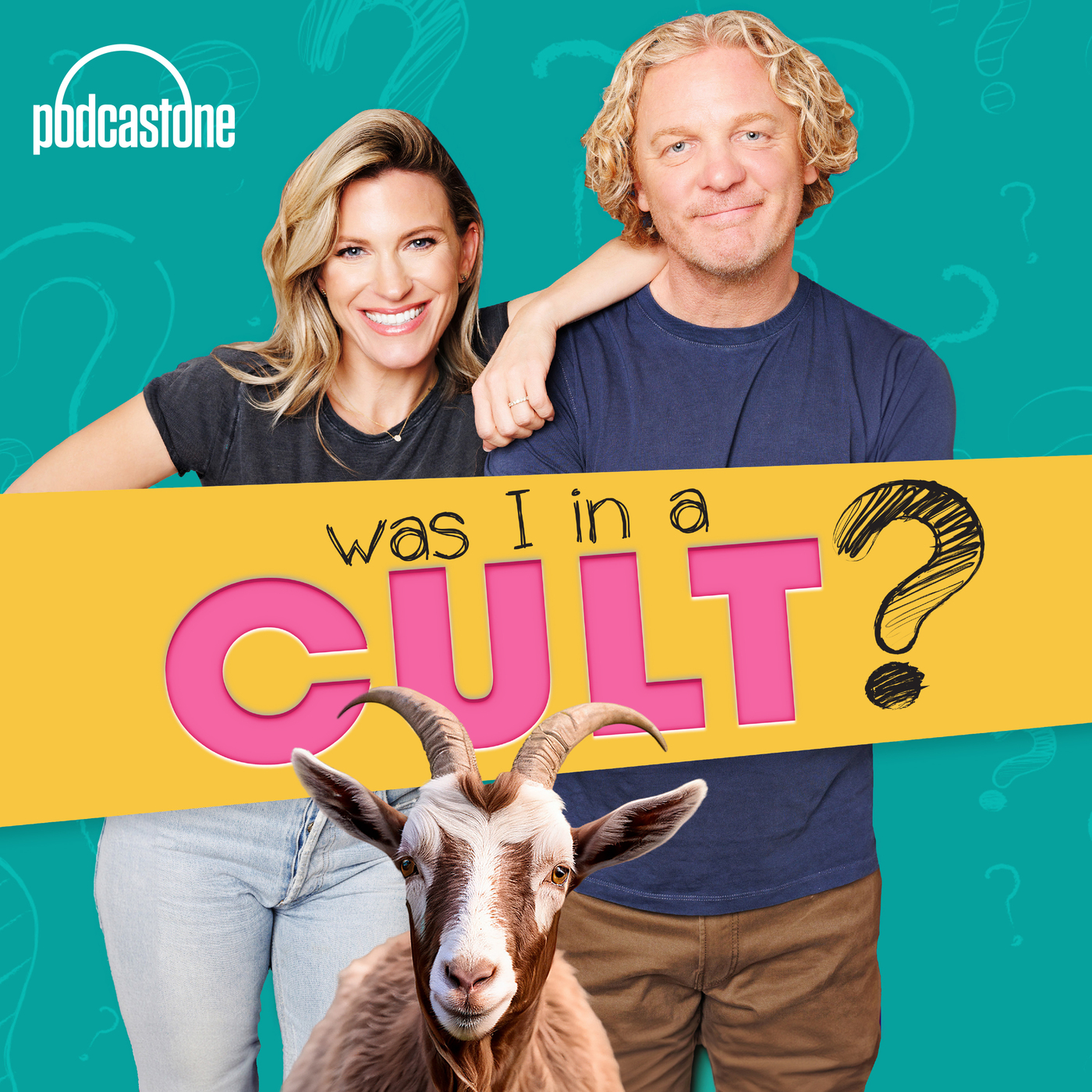
Sane and Simple Podcasting
Helps DIY podcasters manage and grow their podcast with no nonsense, timely tips and tricks from a long time content creator and Podcast Service Provider. Tips include multiple mediums like audio, video, newsletters and using ChatGPT to get share their experience, their stories, their skills out there so they can spend more time connecting than creating.
www.coffeelikemedia.com
Sane and Simple Podcasting
Polish your podcast brand to grow your audience
Making sure your podcast’s online presence is consistent is key to attracting and keeping the right audience. In this episode, I walk April through an Online Presence Audit for her Door Key (history) Podcast, checking out platforms like Facebook, Substack, and Instagram to see if her branding matches up across the board. By branding, I mean making sure the way she talks about the podcast is the same everywhere. Where and how you share your show depends on a lot of things. The important part is deciding how many platforms you want to be on and how deeply you want to engage with your followers on each one. And the first step to figuring that out is this audit.
✨ Request an Online Presence Audit for your podcast: https://www.coffeelikemedia.com/audits.html
😋 FREE COMPANION GUIDES are available the Thursday after this episode is released. https://coffeelike.gumroad.com/
📜 April's Door Key Podcast places online: (history)
Facebook | https://www.facebook.com/groups/1040108179952433
Threads | https://www.threads.net/@doorkeypod
Substack | https://doorkey.substack.com/
LinkedIn| https://www.linkedin.com/in/doorkeypod/
Instagram | https://www.instagram.com/doorkeypod/
Reddit | https://www.reddit.com/r/doorkeypod/
Buzzsprout | https://doorkey.buzzsprout.com/
Spotify | https://open.spotify.com/show/1vQBSSo8ivbnMn2D9aMk4c
Podchaser | https://www.podchaser.com/podcasts/door-key-4762681
Pinterest | https://www.pinterest.com/Doorkeypod/
FREE 15 minute podcast optimization call: https://zcal.co/i/BLwUxyMv
✨ Have a few specific questions? Book a micro consult call here: zcal.co/coffeelikemedia/parkbenchsession
✨ Want to do a deeper dive into your podcast YouTube channel's growth, workflow, optimization? www.coffeelikemedia.com/consults
✨ Ready to commit to a 3 months growth experiment to really find out how YOUR YouTube channel can grow? www.coffeelikemedia.com/coaching.html
✨ Microphone: Samson Q2U✨
- United States: https://amzn.to/3Bk58e3
- UK: https://amzn.to/4g2pVlr
- Germany (ships to Denmark): https://amzn.to/4f2iY2t
🎵 Music: SourceAudio: https://www.sourceaudio.com/
😋 Host on Buzzsprout: https://www.buzzsprout.com/?referrer_id=2022201
👀 Record and go live with Restream: https://restream.io/join/Kro9rJ
Steph:
Hello and welcome to the third season of Podcast To Connect, where we are sharing ways for you to grow your audience by looking at your greater media presence and so much more. I'm excited this season to be joined by April of Door Key podcast.
She'll be joining me in just a minute, but I wanted to tell you some information first before we jump into the conversation I had with her about Door Key's entire online presence. That's what today's episode is about.
Why are we focusing on the podcast's entire online presence? Because when you create a project, you're often too close to it to be objective about its strengths and weaknesses. You're also far too busy creating to keep all of the organizational aspects up to date all the time. April is generous enough to let us walk through and compare her podcast messaging from all of her places. And trust me, it's a lot of places online.
Having brand consistency, having the information that they're putting out into the world about the podcast, about the project, about your company or community, is really important to make sure that the stuff you create early on and the messaging in there matches the stuff that you created now. So going through and checking all of that and making sure it aligns with each other so you can attract the right people to your project. That's what we're focusing on today.
Don't be jealous that that April got her online presence audit done, because you can do one, too.
There's three different ways you can do this, and I'm going to tell you them all right now before we get started.
1. You can actually do like watch the video over on the Coffeelike Media channel Podcast To Connect playlist. You can watch this video and you can see the spreadsheet that I'm literally creating as April and I are talking. And you can do that in tandem with us, too. This episode is published on a Thursday.
2. The following Thursday, the newsletter issue, the supporting newsletter issue comes out, and the resource that's in there be more information on how to create your own Online Media Audit. So you can wait a week and you can use that resource to create your own audit.
3. And of course, number three is you can certainly reach out and hire me to do the media audit for you.
Regardless of which method you choose. I really hope that you do take some time to sit back, reflect, look at what you've put out into the online space about your podcast project and make sure that it says what you want it to say consistently across all the places, all the places that you put your project. You can comment at any time on. You can leave me text messages on Buzzsprout. You can leave messages on YouTube and on Substack. All of the links will be in the show notes or video notes, depending on where you are consuming this. What's most important right now is that we get over to April and we start doing this online audit.
------------------------------------------------------------------------------------------------------------
Steph:
Hello, April.
April:
Hello.
Steph:
So, what's Door Key podcast about?
April:
Door Key podcast is a history podcast. Door Key is two words, Door and Key and it's a play on the word dorky. I talk about just random things that interest me about history. Different facts, different people, different events.
Steph:
Can we do that again? And by we, I mean you.
April:
Yes.
Steph:
And put the Door Key name explanation at the end.
April:
Okay. Yes. Door Key is a history podcast. I talk about different random events and people in history that I find interesting. So I don't focus on any one specific era in history. It's just all over the place, kind of, but in a good way. Door Key is two words. That's Door and key. It's a play in the word dorky because I'm a dork.
Steph:
Yeah, I know that. Door Key, like them being able to find it, is important, but if you front load it with information, but not the. With the specifics. Without the information, they might not stay on till the information. So I'd say front load it with the good stuff and then explain how to find it, which is the door key in the. And then. Yeah. Yeah. So what we're going to do today is we're going to dig into your online presence.
We've been working together for a while. We've been primarily working within LinkedIn for your online presence. A little bit of massaging on the podcast description and things like that. But mostly we've been in LinkedIn because that's mostly where I am. But I want to take a bigger picture view of where Door Key podcast is online, what information is out there, and does it all match? So basically, the brand is Door Key. Right. And what is the brand consistency? Is it saying the same thing about the podcast in all the places? Chances are it's not, because very few people have that consistent. And then it's a matter of how do we clean it up? Which description or information do you want in all of them?
April:
Yeah, got it.
Steph:
So that's the fun. Yeah, because most people, like your YouTube channel, just went live, and so there's information on there that's 2024. But you started your podcast in 2022. And so what most people do is, as they're putting the podcast on different places. They have the like, how they describe it at that time in that place. And what is really good is making sure that all of them connect. So most people need to go back and make them consistent. So that's what we want to do today. To do that, we need this ugly, ugly but necessary spreadsheet.
So we already spent some time going over the places that you spend the most time. And it looks like Facebook threads, Substack, LinkedIn, Instagram, Reddit and Buzzsprout. It looks like those are the places that you spend the most time publishing the podcast and sharing information about it, depending on the platform. And then the other, actually, Spotify is also about the same as Buzzsprout and then the other ones. There's a presence there, but it's not really curated. There's not a lot happening now or ever. And so we're not going to spend too much time with those, but we know that they're there. So if you wanted to take whatever we do with these and share it with the ones that aren't as frequent, that's fine, but it's not necessary.
Okay, so the fun begins. First, we're going to take a look at Facebook. Because I would do this with all the information. I would check the description, I would check links, I would check, like, what's happening there? Like, what's the information there? Any call, regular call to actions that you have. I'd make sure that those were in all the places. But because this is a podcast that we don't want to be a few hours long, we're going to actually just focus on the description for now. And that in Facebook is over in the about section. So can you please read the description on the right hand side?
April:
Yes. A group for listeners of the Door key podcast. Door Key is a podcast about history. I find myself drawn to the more social side of history than dates or battles. While I do think dates and battles are important, I find questions like, when did Catherine of Aragon realize she lost Henry VIII's love to Anne Boleyn? Or just what exactly was Aaron Burr's deal to be? What really fascinates me about history, this is. This is the lens that I view history from on the Door Key Podcast and the accompanying Substack newsletter. Because I'm a dork with a deep love of history who wants to talk about it.
Steph:
Yeah, I think that's the same as the Buzzsprout description, isn't it?
April:
It's pretty close if it's not exact. Yeah.
Steph:
Okay. Awesome. And if we just look at links real quickly, you've got Buzzsprout and Substack. That's awesome. You do have, I think you have more links available on Facebook, so you could put some of the support CTA links in there if you wanted to.
April:
Okay.
Steph;
But let's move on to the next one. Threads. So Door Key is a podcast about history. I'm just a dork with a deep love of history who wants to talk about it. I love that.
April:
Cool.
Steph:
And I'm guessing that it is that short because of a threads like a character requirement. Yeah.
April:
Okay. I think so.
Steph:
And I think you did a really good job picking the part that would catch people's eye. And nothing. Because all the information in the Facebook one is good. But I think if you were to look at the thing that's going to be the punchiest in such a small space. Small. Such a small space.
April:
I think so.
Steph:
I think you honed in on. I can speak. I think you honed in on something that would be very catchy for people. Like, that's what makes the Door Key brand your podcast unique, is it's going through you. How many links do you have on the threads? Did they let you have more than one link?
April:
I don't know.
Steph:
Yeah, that might be something to look into. With the Buzzsprout link, they will go to the podcast if you use. If you can only use one link, if you use the Substack one, then they'll have access to the Substack. The podcast is in the Substack, so they might have more options if you use the Substack one instead of the Buzzsprout one. Or if you can add it. If threads lets you add it, you can add multiple ones. So, yeah. Okay, so now we're on Substack. So the about is over here. Oh, here we go. The Door Key. Oh, it's your turn. Can you read the about thing over here?
April:
The Door Key podcast Substack is meant to be a companion to the history podcast Door Key. This is where you'll find extra tidbits from the podcast episodes as well as other things.
Steph:
It is informative. It's just missing the catchiness of the other two. Okay, so if you have people who go from the podcast to there, they're fine because they already love you. But if you have people that find you on Substack, they might not get a sense of what it's about just from that.
April:
Okay.
Steph:
Do you know what I mean? Here's what you have on Facebook where you have quite a long explanation that's super cute. And then here's the one, the punchy one on threads. And then the Substack one is informational, but it doesn't have that punch.
April:
Got it.
Steph:
Links on Substack. Listen to Door Key. You go to the audio. Follow Door Key. Oh, nice. There you go. Okay. You have all of your links and then Facebook group, you could have a support page on there as well with those links because you do have links for your support places in the podcast. Just pull those into one more tab.
April:
What is, what is support page?
Steph:
Oh, support the podcast by blah blah blah blah.
April:
Got it, got it, got it.
Steph:
Yeah. Just do another, another page there in Substack with support. You can mention all of those. Have a subscribe, like paid subscribe button for Substack. So LinkedIn Door Key is a podcast about history. Okay. This one, I'm going to save us a little bit of time. It looks like the same one that's in Buzzsprout and Facebook.
April:
Okay.
Steph:
And it looks like you have the podcast and the Substack as the links. How many links do they allow you to have?
April:
I don't know.
Steph:
Yeah, me neither. Those cover a lot of ground, though. So I said at the beginning, they're probably going to be very different from one to another, but it looks like you've actually done a fantastic job of keeping up with the places that you put Door Key online. Let's go to the next one. Instagram. This is a podcast about history. I'm just a dork with a deep love of history who wants to talk about it. What's my favorite word today?
April:
Oh, I don't know.
Steph:
Front load!
April:
Okay.
Steph:
Yeah. If you start with, I'm just. I'm a dork with a deep love of history who wants to talk about it. You don't need to say this is a podcast about history because you. Oh, wait, wait, wait. Maybe you do. I'm just a dork with a deep love of history who wants to talk about it. So here's my podcast. I don't know, something like that.
April:
Okay.
Steph:
Yeah, yeah, yeah. Because you want the, the one that differentiates you first and then any other information that's important after. So front load that important stuff. Links. You have the Substack there. Don't remember how many you can have in Instagram, and I could get lost in your picture. So I'm going to try to focus. You find the best images. Okay. Although I wonder, and this is why this, this sheet can come in handy. I wonder, since the threads one is a little punchy I wonder if that would fit over in the Instagram one. I don't know if the character count is possible in Instagram. I'm, I'm wondering if that's why the Instagram thing is so short, if there's a character limit.
Yeah, maybe check that out. Yeah. Because between the two threads of Instagram, which one do you think would like? If somebody was scrolling past your pro, the Door Key profile, which one do you think would stop people in their tracks?
April:
I think the thread one is better.
Steph:
Yeah.
April:
Like, it's the same. It's just the first sentence is worded a little bit differently. That I think.
Steph:
Absolutely. And that's the advantage of putting these all side by side. You then get to go, hey, which one do I like the most? I'll just copy that to all these other ones. So you don't need to write anything new. You're just taking what you've already said and putting it in more places to attract more folks. All right. Reddit, which, I'm impressed. You have a Door Key page on Reddit. You have a Subreddit woman. Okay.
A place for and about the podcast Door Key. Door Key is a podcast about history. The host is not a historian or expert of any kind. She's just a dork with a deep love of history who wants to talk about it.
How do you feel about that one?
April:
I think. I think it could be reworded, definitely.
Steph:
How early on did you make the Reddit one?
April:
Pretty early on.
Steph
Yeah. Yeah.
April:
So that's old.
Steph:
Yeah, yeah, absolutely. And that. And I'm going to be completely clear. And I feel like this is a lot of red penning, and that's not what I mean this to be. But normally, when I do this for clients, whether it be in an audit or during consultation, whatever, it's usually different for every single place. So the fact that yours are so close to each other is blowing my mind right now. That's amazing. Yeah, no, that's really, really good. There's still some things we can tweak, but the longer a podcast goes on, the less likely it is that they all are consistent with each other. And if you've got one bang and one, you want that to be the one that's in all the places as opposed to the got to get this on. I just have to fill this out so I can publish it here. Those. I have many.
I have had many of those in my life, and when I go back and find them, I'm like, oh, my Gosh, that is the worst description ever.
April:
The Reddit one. Definitely could use some, some tweaking.
Steph:
Just use one of the other ones because you've got it, you're going to have at least more than half a dozen to choose from.
April:
Yeah.
Steph:
All right, let's keep going. We're almost done here. So we did Reddit. Oh, Reddit. Wait, let's go back here. Is that still on the screen? Where, what links can you have? Can you have any links going outward from Reddit?
April:
Um, I think, I think so where are they?
Steph:
Like, how do you, is it in a post? I'm going to click on one post. Oh, there you go. It is. OkaY. In a post, you can have them. Okay.
April:
Yeah, yeah, that makes sense.
Steph:
I would. If you can include more than one, I would include the Substack as well as the Buzzsprout.
April:
Yes. What I've been doing is, like, alternating. So, like, if this was yesterday, so today's, there will be a link to the, to the Substack. Yeah.
Steph:
But Three members. I know it doesn't take you a lot of time to post these, but you have a lot of places and like 14 posts every two weeks.
April:
I know. So I don't know. Yeah, I don't know who those people are. Like, I don't know if they're somewhere else. I don't know. I feel like you could do a.
Steph:
Post saying, hey, I'm thinking of moving the site to blah. Let me know if you prefer it here and see if they do anything.
April:
Yeah.
Steph:
If you did it early on, it might just be friends who are too polite to unsubscribe. But you could, if you ever stopped doing it, you could just put a post saying, hey, I'm going to post in these places instead and keep it there. You don't have to delete it. If you ever stopped.
April:
Yeah, and I, when I post all these social media places, it only takes me like five or ten minutes at the most, and that's going from place to place. And because I do post the same thing because different people see me on different platforms.
Steph:
But social media's gem is engagement. And if you're just rushing around, posting, posting, posting, posting, posting, you don't have time to do the engagement part. Do you know what I mean? It's just, yeah, it just depends on how you want to use all of this. Yeah, yeah, yeah, yeah. Okay. Now Spotify, because it isn't connected to Apple, but that looks like almost the same one that's in Buzzsprout. So either you are super meticulous or you are super meticulous. Boom. Okay, so here's pod chaser history, education, society and culture podcast. Yep. About. Yeah, this is the same.
April:
Is it really? This is awesome.
Steph:
I've never, I've never seen it this consistent.
April:
Wow, that's exciting.
April:
Exciting.
Steph:
Because I can't even remember the last time I was on podchaser. Like, I couldn't tell you anything, but honestly, I couldn't tell you the first thing about pod chaser. And that's nothing against pod chaser. I just.
Steph
Yeah. Oh, I know. Yeah. So there's a history pods with the Buzzsprout podcast community on there. That's really cool. Is this a list you created or that somebody created in put door key?
April:
Oh, I think someone created that.
Steph:
Oh, yeah. By stitch164. Yeah. So you're in that list. That's cool.
April:
Oh, that is cool. I didn't know that. Nope.
Steph:
Very cool. And these are the cool things that we find. Now, are there links? I don't remember. Follow rate contact? The podcast? Oh, they only have social links. Let's see if yours work. Facebook. Whoops. Okay. So you might want to go in there and add your social media links. I know you don't use podchaser, but if you just plant those there, you don't have to do anything else.
April:
Yes.
Steph:
Yeah. So I would go in and update those. Where are we? So, Podchaser, Pinterest.
April:
Yeah, that. That was kind of an experiment. I'm pulling that now.
Steph:
I mean, it makes sense. We all do that. So this is a podcast. I'm not. Okay, this one looks like. Where was that other one? Like the Instagram one?
April:
Yeah. So you can see that I. Yeah, I made that a long time ago. Mm hmm. So I need to update that and actually upload the pictures to it that I. Because I. If I'm going to post all these photos, I might as well post to Pinterest as well so people can see it. And I don't look at it. I don't.
Steph:
I don't know Pinterest well enough. I don't know what kind of value add you have to do to gain momentum there. It's really not a platform that I'm terribly familiar with. But the thing I do know is I want to know what links you're able to have. I don't see any links. Oh, okay. There's a Buzzsprout one here. Are you only allowed to have one link?
April:
If I remember correctly? Yes. And so what I would do is I would do, like, the first. The first post of whatever topic I'm covering.
Steph:
I would put the link to the episode in that one and the description of the episode and then in the description itself of the podcast, it looks like there's one link. Oh, I would check to see if you could have more than one here. I'm not sure. I don't, I don't know Pinterest, but that's just in the, that, in the, in the posts themselves.
April:
No, I do.
Steph:
I can't, I can't help there.
April:
Yeah.
Steph:
Okay. Um, let's see. Where are we now? YouTube? We're not. That was. Yeah, we're not going to talk about YouTube yet. Okay, let me put this on the screen one final time because I think, seriously, I do this for every podcast management consultation, podcast marketing consult, like every client I have, I do a version of this and I've never seen it this consistent. You have a few different versions, but here it is. You have a few different versions, but there's at least consistent. Like, there's, these three are the same and I think they're very similar to this one. And then you've got that one similar to that one. This one similar to that one. So I think you have only about three or four, just, I think maybe even three descriptions, which for 1234-5678 910 platforms, that's pretty impressive. So what you get to do now, you have access to this, of course, you can go in and you can literally see, here's all the work I've done. What do I like the best? Where do I want to put it? And then change this. And I would say every six months, have a reminder to go back in and see if there's anything that needs to change. Because inevitably, as you add on other things, because we constantly experiment, you'll want to, you'll create new descriptions and then you want to reevaluate it again. So I would just keep updating this every, I'd say twice a year. It's probably pretty good.
April:
Okay.
Steph:
Yeah, yeah, yeah, yeah. But that was, that was way easier than I thought it was going to be.
April:
Oh, good. I'm just, I'm shocked that it is so similar. I'm surprised that I did that.
Steph:
No, it's a good thing. It's a good thing. And again, it's not. We weren't looking at your, just your social media presence. We were looking at your entire Door Key’s entire online presence.
April:
Yeah.
Steph:
And so I've got like a specific audit just for this, just to say, here's all the stuff, here are some suggestions off you go, it is because, honestly, you know how podcasters move. We're like, publish, publish, publish, publish, publish. And we don't ever really stop and look at what is being shown. Like, the first thing that somebody can see. So it's sometimes really helpful to have somebody else look at it and organize it, and then you go, okay, now I can go change it. Now, as you're doing this, if you want to change them even more, I mean, go crazy. If you want to delete stuff, add stuff, that's fine. But just make a conscious decision. I can speak and keep it updated so you can kind of get that big picture view at any given time.
April:
Yeah.
Steph:
Yeah. This is fun for me. I don't know why, but there's something about looking at the big picture of what a brand a podcast, in this case, is doing that is really exciting. Is that weird?
April:
Not. I think it's exciting, too. Like, I love this. This is fascinating to me. Like, I know I'm on all those places, but I couldn't specifically just tell you. And so going in and looking and having it all side by side, it's like, wow.
Steph:
Yeah. Yeah. And, of course, each platform has their own nuances.
April:
Yes.
Steph:
The reason why I generally recommend that people have a few platforms that they're on is they can go deeper into each platform and do that engagement that I was talking about and do the shaping of the text and the descriptions and the posts and whatnot that are how people are talking to each other on that platform. If you're just posting the same thing across all platforms, you're not really shaping it to what people are used to on that one platform. So it's a little bit harder to get that deep connection via those posts, so. Yeah, yeah. But I get it. I get wanting to be everywhere because.
April:
There's people that follow me on. On Facebook that don't follow my podcast on Instagram, because not everyone wants to be on Instagram.
Steph:
Yeah.
April:
Everyone wants to be on threads. Not everyone wants to be in. And so I guess I kind of feel like if I'm in all those places that they can pick and choose if and when and what they want to follow, and if they don't, I'm. I'm fine with that. Like, they're gonna. They're gonna see it somewhere because it's everywhere.
Steph:
It's interesting because we're. We're saying two different things. I find this really fascinating. This might lead into the next episode, because I'm saying engage and talk to, and you're saying follow. Like, you're talking about them finding you and consuming stuff. And I'm saying talk with.
April:
Yeah, well, I. I want them to engage, definitely.
Steph:
Right.
April:
But I guess what you're saying is I'm not going to be able to engage as much if I have so many, if I'm spread so thin.
Steph:
It's hard to get that specific per platform, if you're using the same text on all the platforms, because they're not all the same. The platforms, people talk to each other. People write to each other and talk to each other differently on all the platforms. And knowing those nuances is it takes more time and more. More tweaking than just posting the same thing across all of them.
April:
Yeah. And I wasn't on any of these besides Facebook before I started this podcast. I was, oh, I know, just on. So, yeah, you know, I'm learning and experimenting.
Steph:
What you could do is you could, like, blanket post on most of them and pick one that you really want to have those. If you, if you want. Do you want to have those, the engagement moments with listeners?
April:
Oh, yeah, definitely. Okay.
Steph:
But you could pick one and spend a little more time on that one and start looking at other people's posts and like, how are people doing this? How are people doing that? Try to, like, instigate more of the conversations on there and just kind of spend a little, like, more time on that one and see where that goes. But still, blanket post the other ones. Like, you don't have to do that for all of them. You can't unless it's your full time job. Even then, usually people get very specific. So, yeah, you could do that if you wanted to. So remind folks what is one place you want them to remember that they can find Door Key?
April:
Doorkey.substack.com. and you can find links to all the streaming platforms on that. As you can tell, I'm everywhere.
Steph:
We will have the links in the show notes to all of this. You can follow her anywhere.
April:
And don't feel bad if you're not interested in most of those. Just. It's okay.
Steph:
Just go where you want to go. Yes. I love it. Yay. Okay, until next time, say bye, April. Bye.
------------------------------------------------------------------------------------------------------------
Steph:
Wow. I told you April had a lot of places online that Door Key Podcast is. And I, man, I, like, I told her, I've never seen a, I've never seen podcast branding that was so consistent from one to the next. But even, even with her diligence, there were some that were not as representative of the energy and the personality of Door Key podcast as others were.
So now that she has that sheet, she can go through, compare all of them right next to each other because that's how we set it up. And she can make decisions on what, what text, what copy, what messaging, whatever you want to call it she wants in each of those places, change them, and then set the calendar to come back in six months and see if there are any changes she wants to make. Then once you get your branding consistent.
You don't have to go back and change it every week, every month. You can set it for once or twice a year, and then inevitably there will be changes in some of the newer things that you're doing with your podcast or project. And you really want to go in and make sure that that resonates across all of your brand platforms, all of your media presence. So once you've done this once, it's so much easier to go back through and just update it every once in a while. I hope you found this information useful. If you did, please do leave a comment. Either a text message on Buzzsprout in your podcast app or on YouTube, the YouTube video, or the Substack post that will be coming out the week after the episode comes out.
All right, that's it. Have fun spreadsheeting and we'll be back in two weeks.







